A.J. McLellan Elementary 24-25
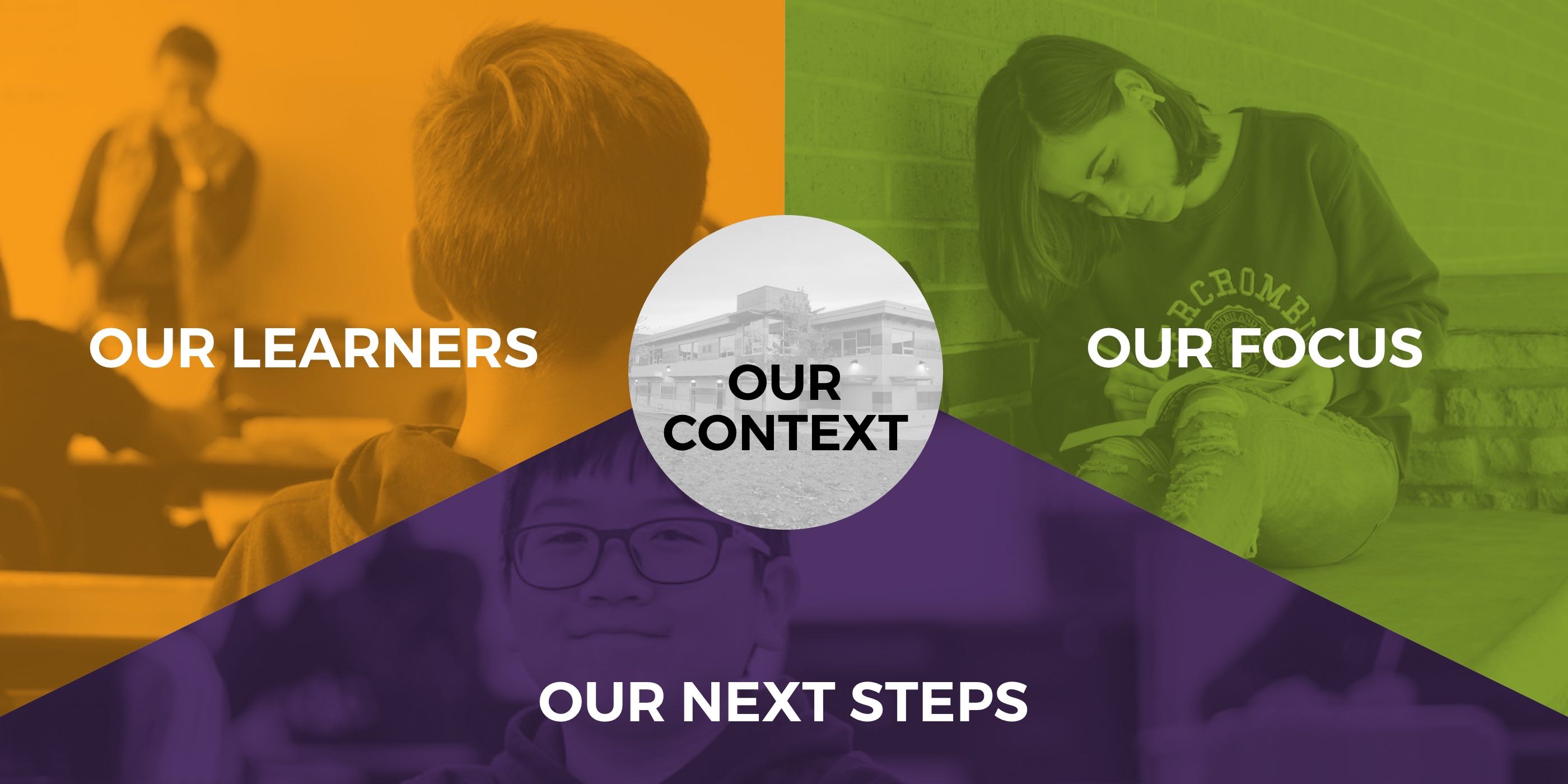

OUR CONTEXT
Our AJ McLellan community acknowledges that we work, play, and learn on the traditional, ancestral, and unceeded territory of the Katzie, Kwantlen, Semiahmoo, and other Coast Salish Peoples. AJ McLellan is a school with a rich 22-year history, located in Cloverdale East. We pride ourselves on providing a safe, supportive, and inclusive environment for all of our learners. Every member of our AJ community strives to contribute positively to our school culture.
Students of all ages work towards making AJ McLellan a positive place to be. Our primary students love helping to keep our grounds clean, intermediate students support and supervise younger peers at lunchtime, and our Grade 7s assist with leadership roles throughout the school, including morning announcements. We also have a wonderful parent community that supports the school in numerous ways, including through our very active Parent Advisory Council.
Our learners are proud to be Dragons who uphold our high expectations for positive student behaviour, social responsibility, and academics. At AJ McLellan, we strive to uphold our 6 Core Values, which guide us to be:
Kind
Honest
Empathetic
Unique
Resilient
Respectful
We are committed to developing our students’ Social-Emotional Learning (SEL). We have an SEL teacher lead and SEL committee at our school that regularly provides school-wide opportunities to learn together through evidence-based programs, lessons, activities, and assemblies. Students at AJ McLellan are learning about fixed mindset versus growth mindset—understanding that just because something is a certain way now, doesn't mean it will be that way forever. They use this knowledge to increase perseverance and begin to see themselves as learners capable of many wonderful things.
Extracurricular opportunities are available to all ages. We provide students with opportunities to explore their interests and grow their passions. These opportunities include, but aren't limited to, various sports teams, a grade 7 care club, a reading link program, a photography club, primary and intermediate choirs, a community service team, a spirit team, and an announcement team.
Racial equity guides our learning around culture, social justice, and acceptance. At AJ McLellan, we are committed to fostering an environment where every student feels valued and respected. We believe that understanding and appreciating our diverse backgrounds enriches our community and enhances our learning experiences.
Together, we learn about each other's heritage, culture, and traditions through various activities and programs. These include:
Cultural Celebrations: We host events that celebrate the rich tapestry of cultures within our school. These events provide opportunities for students to share their traditions and learn from one another.
Inclusive Curriculum: Our curriculum incorporates diverse perspectives and histories, ensuring that all students see themselves reflected in their learning materials. We strive to provide a balanced and comprehensive understanding of different cultures and their contributions.
Social Justice Education: We engage students in discussions and projects that explore social justice issues, encouraging them to think critically about equity and fairness in society. This helps students develop a deeper understanding of the challenges faced by different communities and the importance of advocating for change.
Student-Led Initiatives: We empower students to take the lead in promoting racial equity and we have an active Diversity Club. These initiatives allow students to actively contribute to creating a more equitable school environment.
We acknowledge and celebrate special events and cultural holidays, recognizing their significance and the diverse traditions they represent. By honouring these occasions, we show our respect for the varied backgrounds of our students and their families.
At AJ McLellan, we work to develop our understanding of what binds us together as a community. Through open dialogue and shared experiences, we learn about the values and principles that unite us. We recognize that our diversity is our strength and that we have much to learn from each other. This commitment to racial equity not only enhances our educational environment but also prepares our students to be thoughtful, compassionate citizens in an increasingly diverse world.
OUR LEARNERS
At A.J. McLellan, we know that our learners learn in different ways and at different rates. To ensure that our students are provided with quality educational opportunities, the Core Competencies are embedded into the learning plans and activities in our classrooms. We teach competencies so that students become skillful when collaborating, problem solving, sharing ideas and expressing their individuality. Reflection and self-assessment of the competencies allow our students to discover and develop their individual talents and interests, to set goals, to gain greater ownership of their learning, to describe who they are as learners, to document their progress, and to share their learning.
We are committed to creating an equitable learning environment. Our numeracy focus provides opportunities for students to collaborate and engage in learning experiences that allow them to find their voices and discover their thoughts and feelings. These experiences create time and space for students to grapple with ideas and make meaning through inquiry-based and hands-on activities. Students use a variety of tools and resources and partake in numeracy opportunities that emphasize doing—investigating, experimenting, and co-creating.
Our primary classrooms are engaging in loose parts, storytelling, and pretend play activities to enhance numeracy skills. Meanwhile, our intermediate classes are focused on inquiry-driven and problem-solving projects in numeracy. Across the entire school, we've had the privilege of participating in a Mathematician in Residence week, a school-wide number talk day, and several lunch and learn events for teachers. Our learners are developing cognitive skills and habits of mind, using a variety of strategies and innovative tools that prepare them for challenging learning tasks.
In grade 6 our students can model mathematics in contextualized experiences.
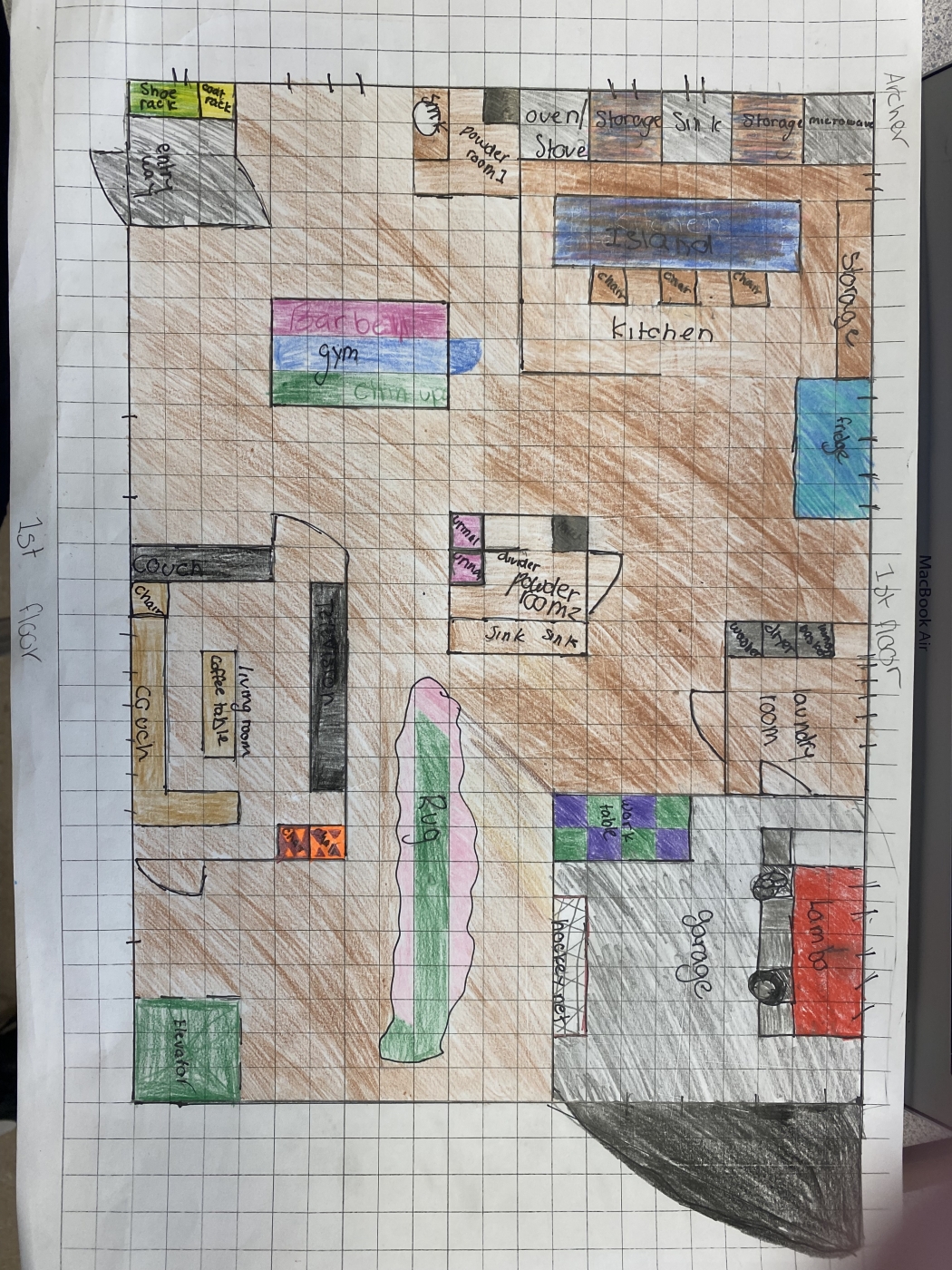
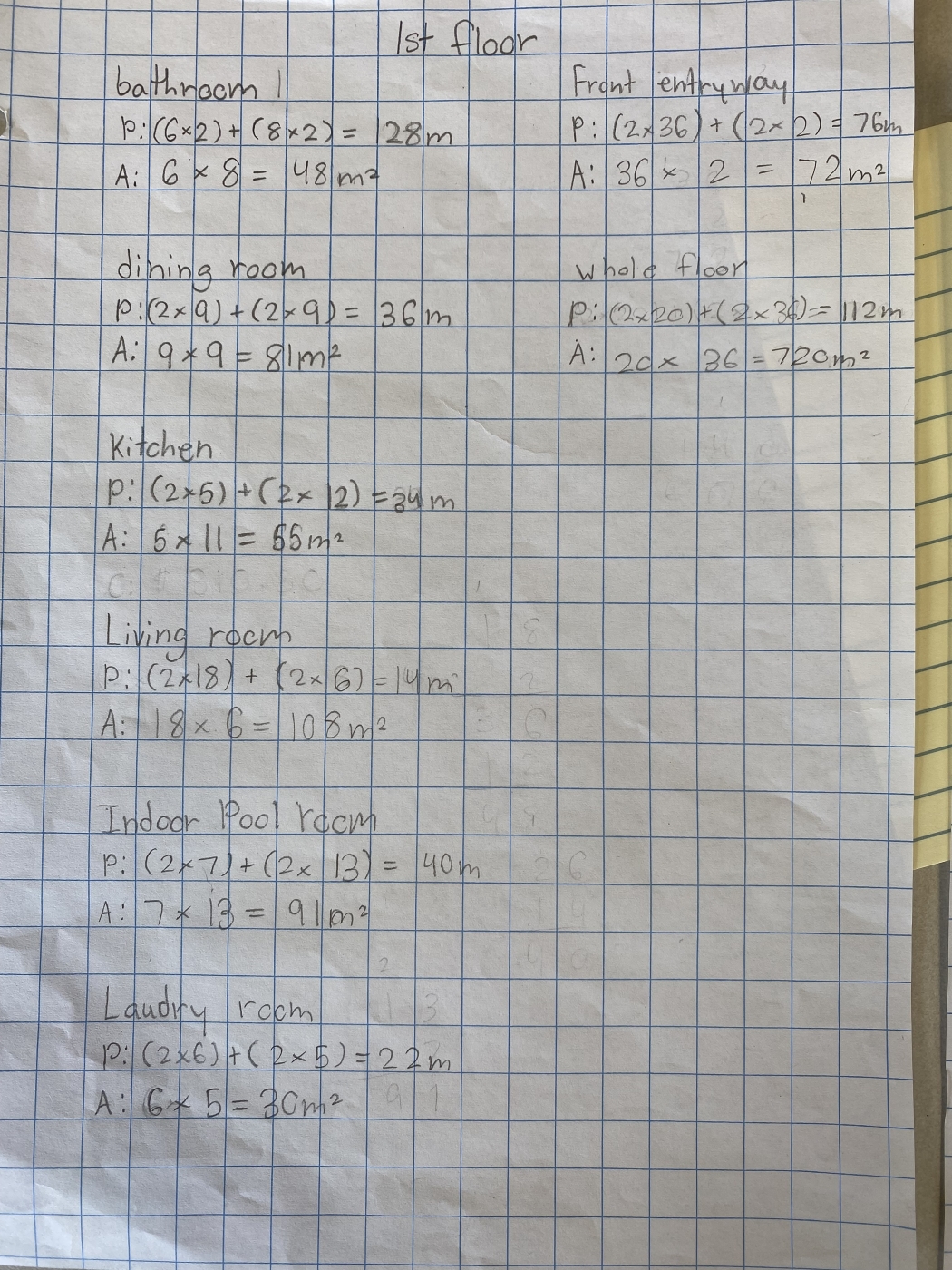
In grade 3 our students can model mathematics in contextualized experiences.
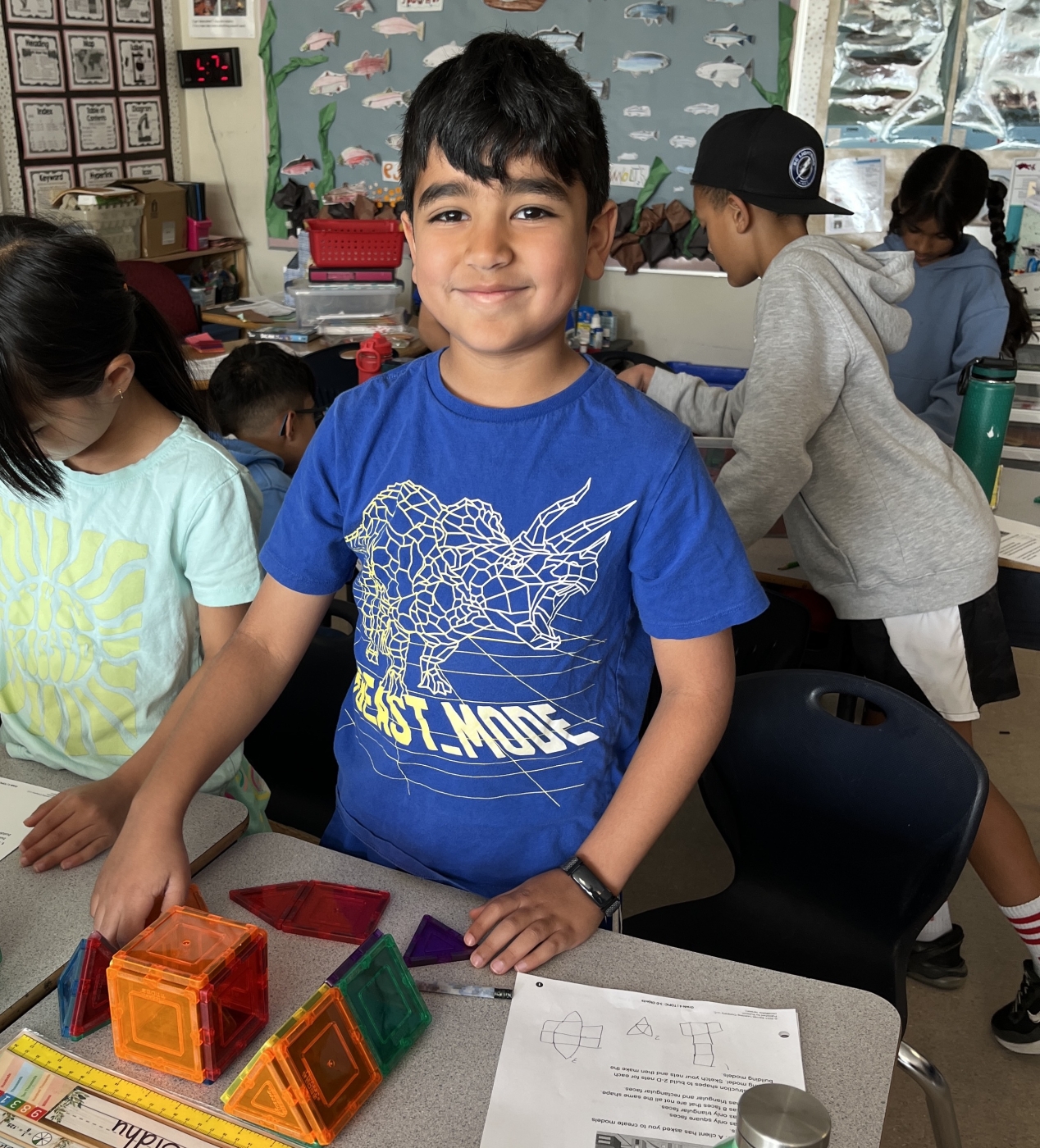
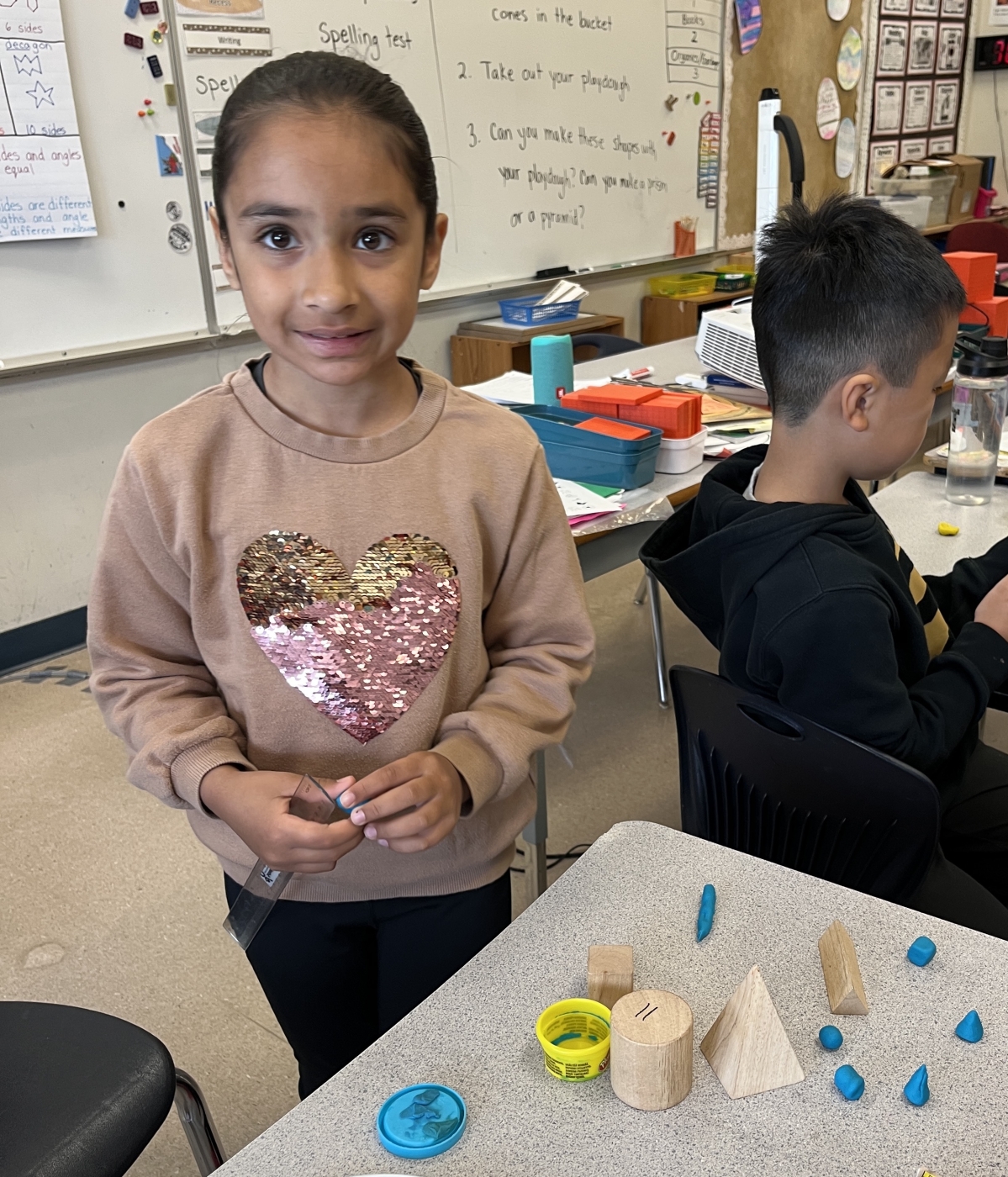
In grade 2 our students can use storytelling to develop, demonstrate, and apply mathematical understanding.
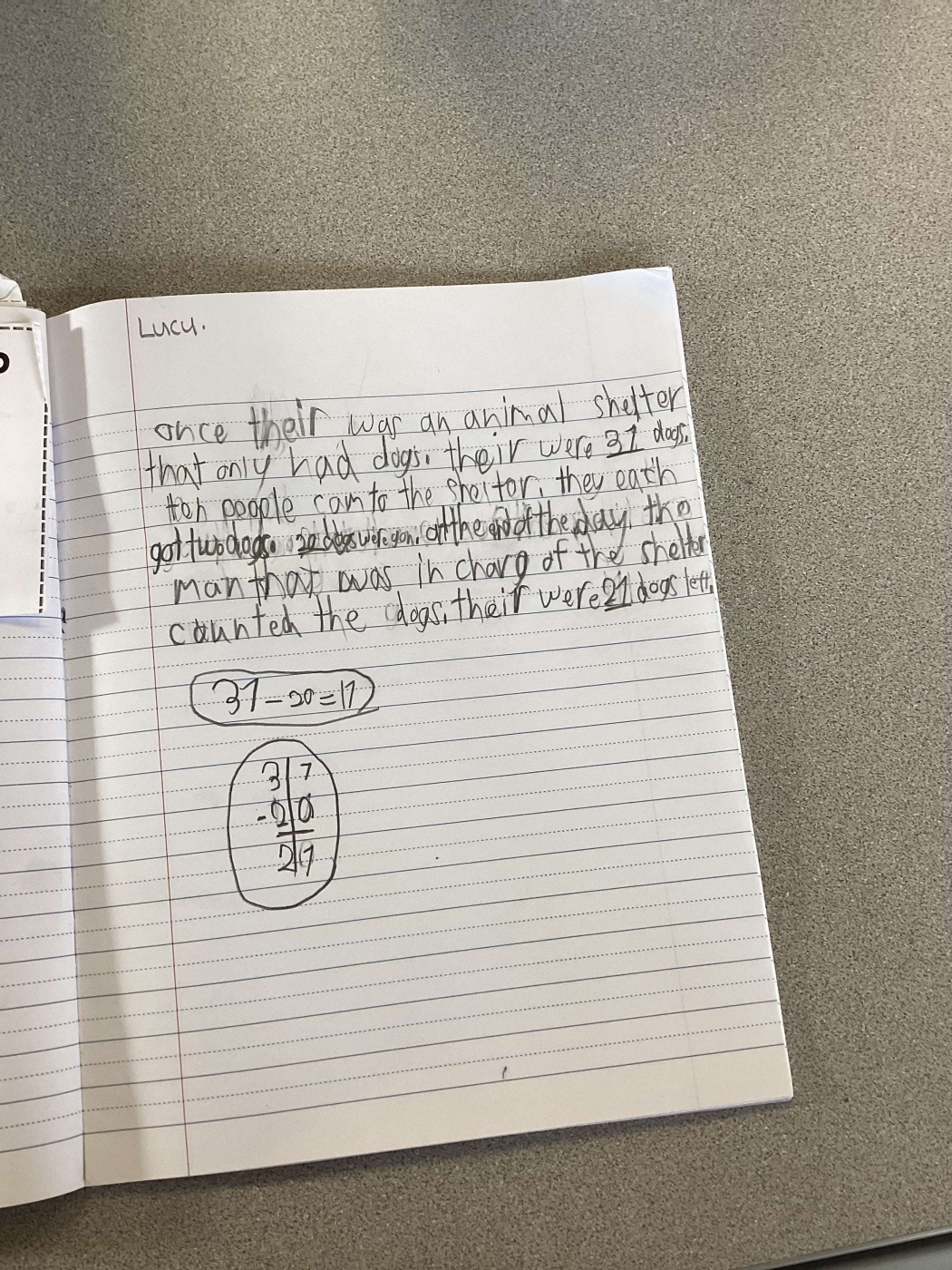
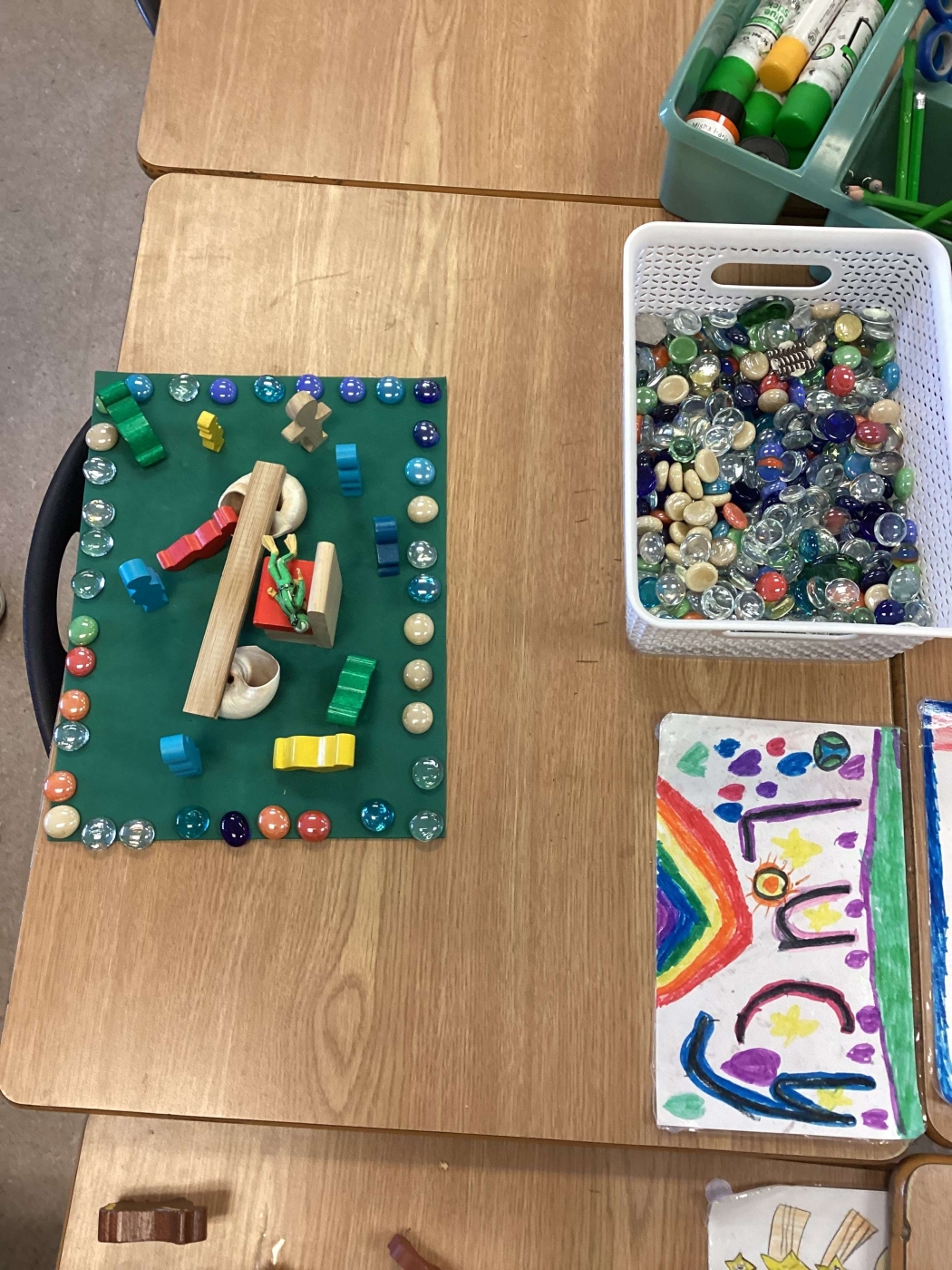
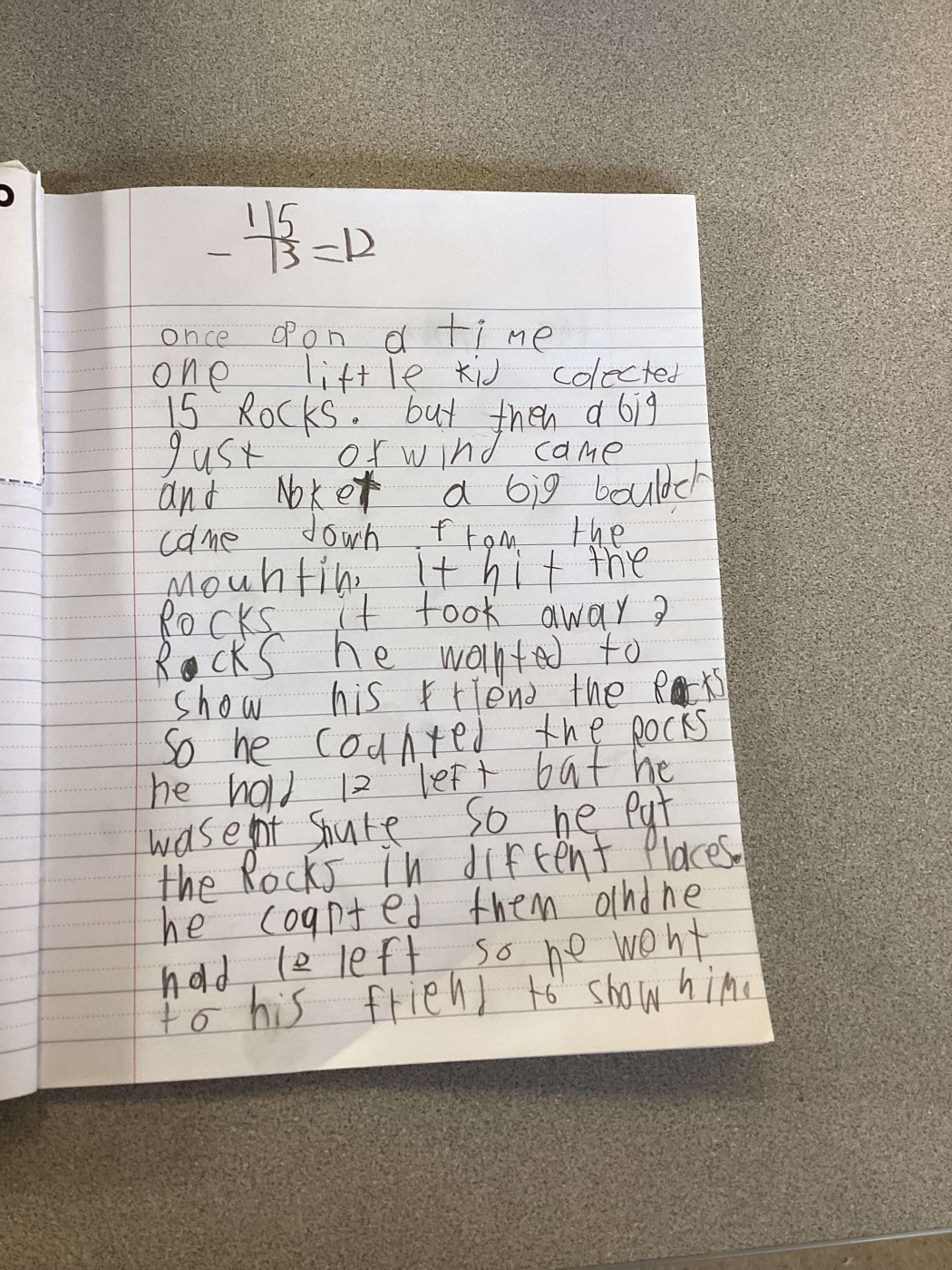
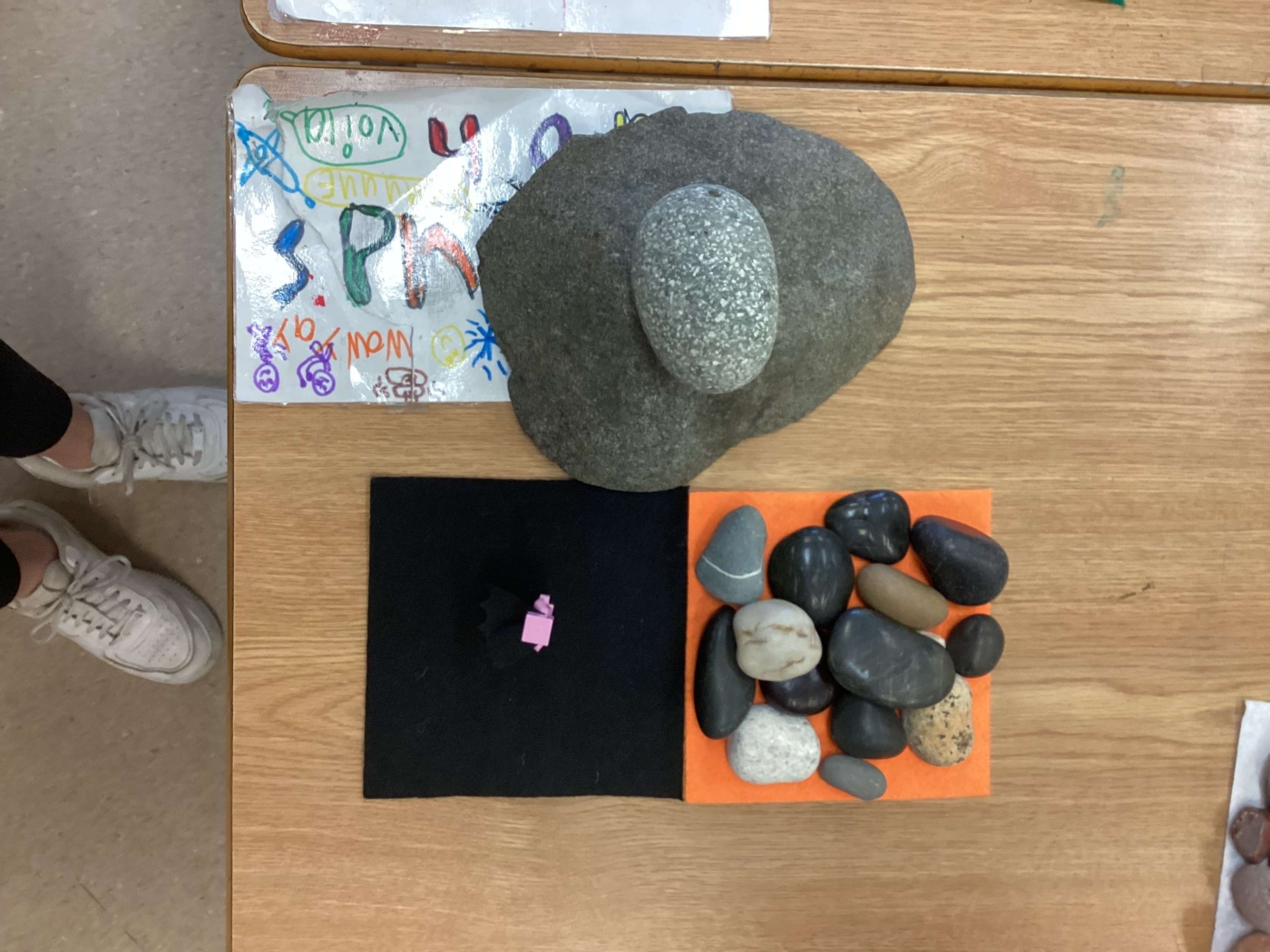
In grade 1, our students can connect mathematical concepts to each other and to other areas and personal interests.
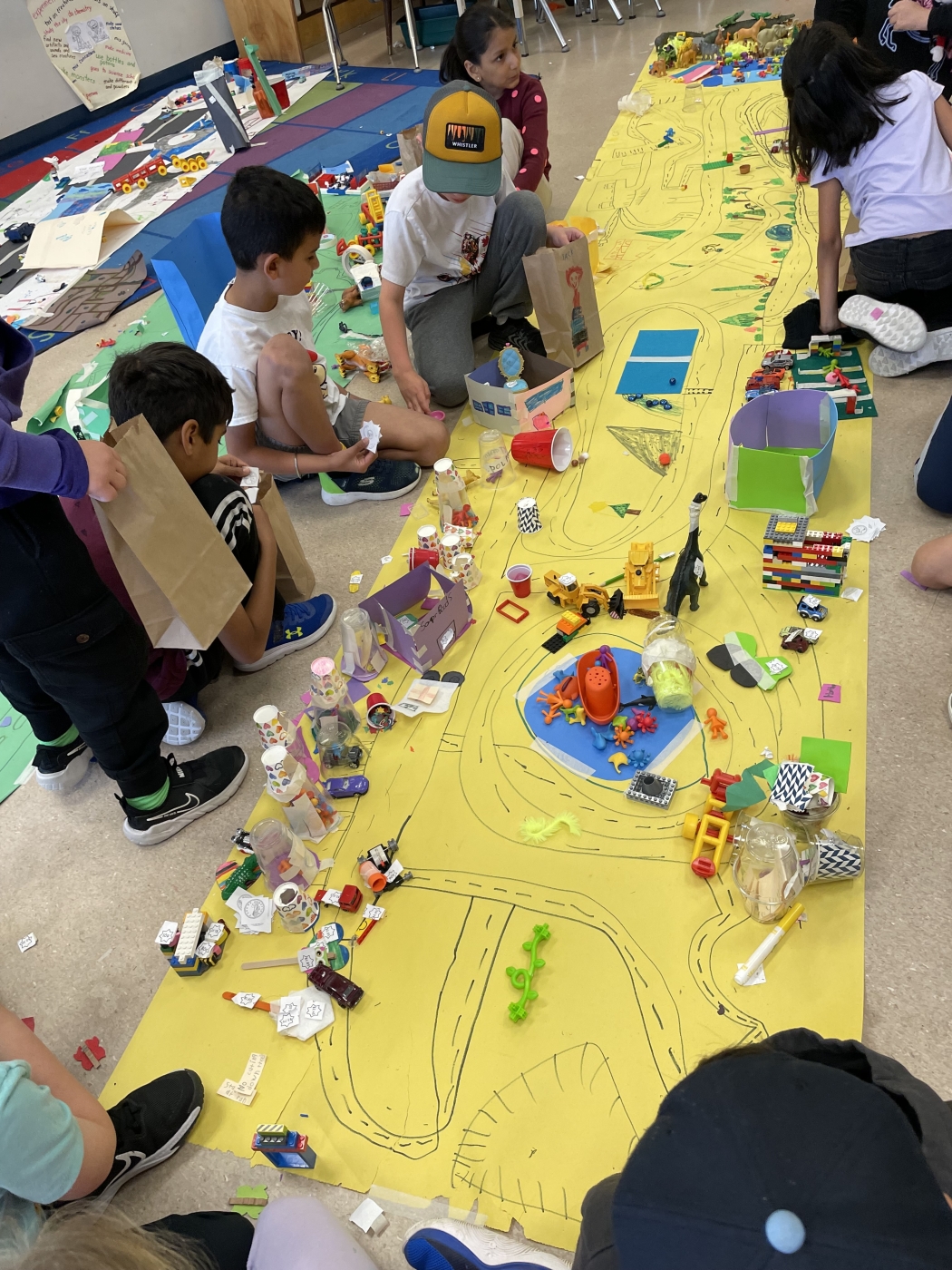
Our learners are discovering their capabilities, creativity, and resilience as individuals. The First Peoples Principles of Learning, articulated by Indigenous Elders, scholars, and knowledge keepers, are a set of learning principles specific to First Peoples. These principles, particularly that "learning is holistic, reflexive, reflective, experiential, and relational," can significantly enhances our numeracy focus on improving mathematical attitudes in several ways:
Holistic Learning: This approach considers the whole person, integrating emotional, social, and cognitive aspects. In numeracy, this means recognizing that problem-solving isn't just about numbers but also about understanding contexts, emotions, and relationships. This helps students see the relevance of math in their lives and communities, fostering a positive attitude towards mathematics.
Reflexive and Reflective Learning: Encouraging students to think about their thinking (metacognition) helps them understand their problem-solving processes. Reflecting on what strategies worked or didn't work builds confidence and a positive mindset, as students learn to adapt and improve their approaches over time.
Experiential Learning: Learning through experience, such as hands-on activities or real-world problem-solving, makes numeracy more engaging and meaningful. This approach helps students develop practical skills and a positive attitude towards mathematics by learning from both successes and failures in a supportive environment.
Relational Learning: Focusing on relationships and connectedness can foster a collaborative learning environment. When students work together to solve problems, they build communication and teamwork skills, which are crucial for developing a positive attitude towards mathematics. They also learn to support each other, creating a community of learners who can rely on one another.
By integrating these principles, we foster a numeracy curriculum that not only enhances problem-solving skills but also fosters a positive attitude towards mathematics, encouraging students to approach mathematical challenges with confidence and enthusiasm.
OUR FOCUS
"Mathematics learning is not a race, and it is mathematical depth that inspires students and keeps them engaged and learning mathematics well, setting them up for high-level learning in the future." - Jo Boaler
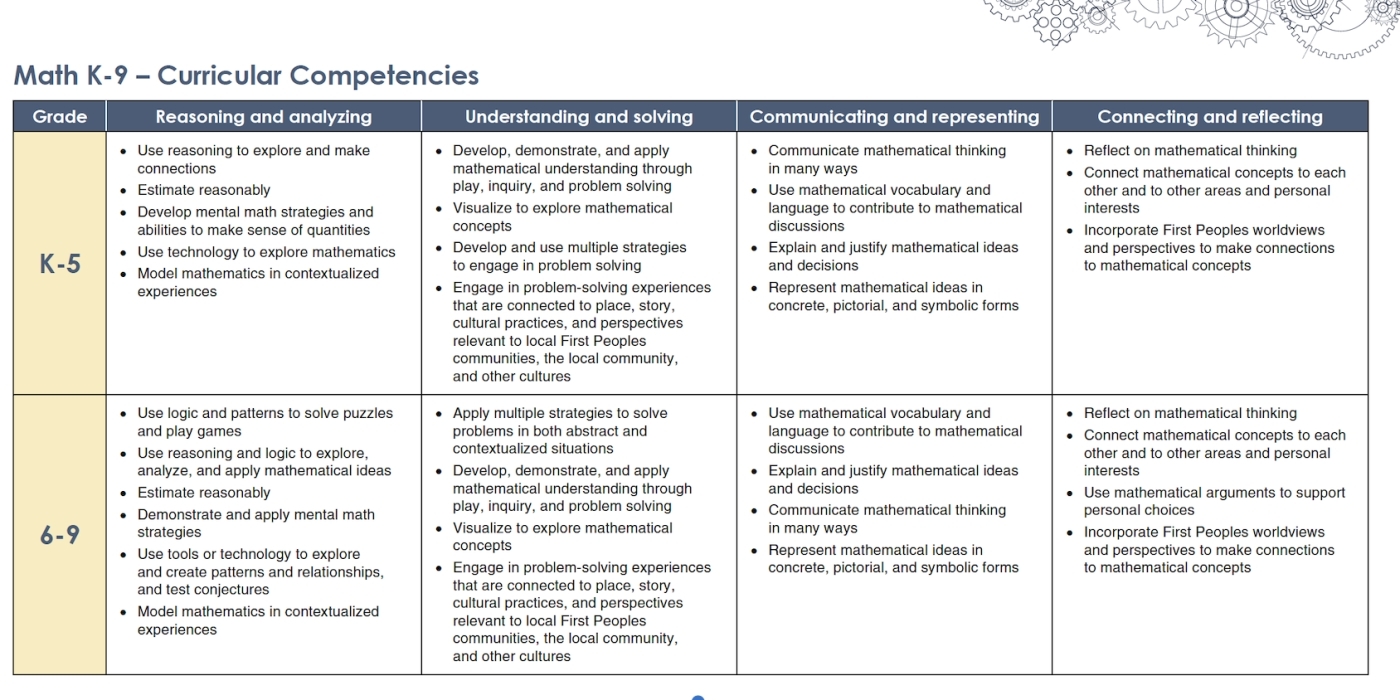
The BC Mathematics Curriculum has an increased focus on competencies - what a student can do - in addition to the facts and information a student knows. At AJ McLellan, our curricular competency focus is for students from Kindergarten to Grade 7 is to develop, demonstrate, and apply mathematical understanding through play, inquiry, and problem-solving. Our goal is to create engaging and effective learning experiences that foster positive mathematical attitudes and a deep understanding of numeracy skills.
Students at A.J. McLellan have demonstrated significant growth and progress in numeracy. As a staff we have come together to discuss the trends we are seeing in numeracy and achievement across the grade levels. Last year, we identified the use of multiple strategies in problem-solving and the development of mathematical resilience as our key areas of focus. Our primary cohort (grade 2 & 3) was encouraged to employ various strategies—visual, oral, play, experimental, written, and symbolic—in both abstract and contextualized situations. They were provided with opportunities to engage in deep-thinking activities, which led to increased student success. Building on this momentum, this year we are shifting our focus towards play-based, inquiry-driven, and open-ended activities in math, with a focus on or intermediate students. By integrating these approaches, we aim to foster a deeper understanding and appreciation of mathematical concepts and create a dynamic and supportive learning environment that nurtures curiosity and a lifelong love for math.
Our Goals:
Classes from K-7 will use increased play, inquiry, and problem-solving to develop numeracy skills.
Our intermediate students will apply multiple strategies to solve problems in both abstract and contextualized situations.
The benefits of these goals include:
Critical Thinking and Creative Problem-Solving: Students will think critically and solve problems creatively, skills that are essential for mathematical reasoning and real-world applications.
Engagement and Motivation: Play-based learning makes math fun and engaging, which can increase students' motivation and interest in the subject.
Hands-On Learning: Through play and inquiry, students can explore mathematical concepts in a hands-on and practical way, helping them understand abstract ideas more concretely.
Social Skills Development: Collaborative play and inquiry activities help students develop social skills, such as communication and teamwork, while also building confidence in their abilities.
Differentiated Instruction: Play and inquiry allow for differentiated instruction, catering to diverse learning styles and paces, ensuring that all students can grasp numeracy concepts effectively.
Our Question:
How will play, inquiry, and problem-solving support the development of positive mathematical attitudes and deep numeracy understandings in our intermediate students?
We have selected intermediate students as our cohort as we have noticed a decline in mathematical attitudes and success among our intermediate students. Through this inquiry and school goal, we aim to improve mathematical attitudes and foster a positive learning environment where students feel capable, creative, and resilient. Our approach aligns with the First Peoples Principles of Learning, which emphasize holistic, reflexive, reflective, experiential, and relational learning.
These principles enhance our numeracy focus by:
Holistic Learning: Integrating emotional, social, and cognitive aspects to recognize the relevance of math in students' lives and communities.
Reflexive and Reflective Learning: Encouraging metacognition to build confidence and a positive mindset towards problem-solving.
Experiential Learning: Making numeracy engaging and meaningful through hands-on activities and real-world problem-solving.
Relational Learning: Fostering a collaborative environment where students support each other and develop communication and teamwork skills.
By integrating these principles, we create a numeracy curriculum that not only enhances problem-solving skills but also fosters a positive attitude towards mathematics, encouraging students to approach mathematical challenges with confidence and enthusiasm.
OUR NEXT STEPS
Evidence of Learning:
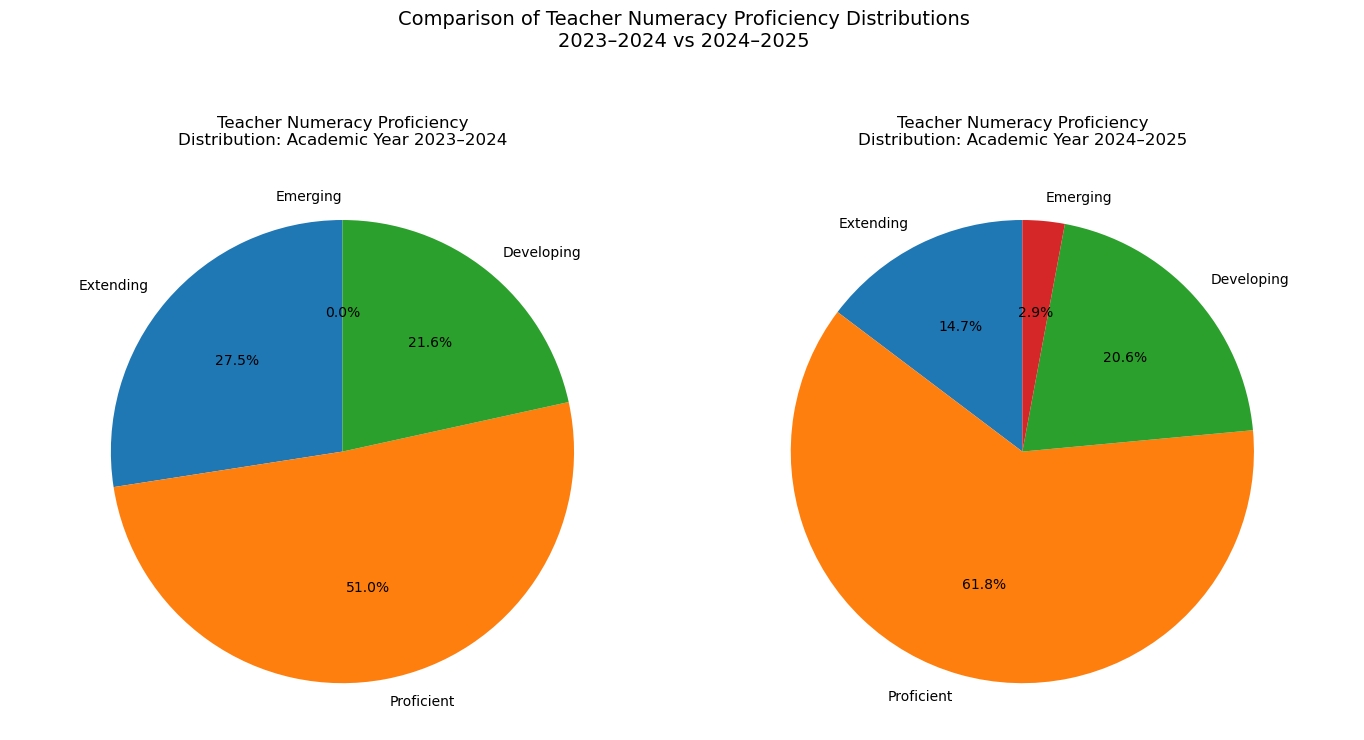
This data shows promising growth in student numeracy, particularly in the Proficient category. To build on this momentum and address areas of need, we can use inquiry-based learning, rich problem-solving experiences, and open-ended tasks as powerful tools for deepening understanding and promoting growth across all proficiency levels:
Engaging Emerging Learners through Exploration
For students in the Emerging category, inquiry-based approaches can spark curiosity and build foundational skills in a meaningful context. By allowing students opportunities to learn through play, ask questions, and make sense of math through real-world scenarios, we can create more inclusive entry points into numeracy learning.
Supporting Developing Students with Scaffolded Inquiry
For those in the Developing category, scaffolded problem-solving tasks can bridge gaps in understanding while promoting independence. Structured opportunities to reason, reflect, and revise their thinking help students build confidence and move toward proficiency.
Fostering Advancement to Extending
To support more students in moving from Proficient to Extending, we can integrate complex, open-ended problems that encourage multiple strategies and solutions. These tasks promote critical thinking, mathematical reasoning, and resilience.
While some of our students may not currently meet all mathematical expectations, it's essential to acknowledge their diverse strengths and the progress they've already made. Our approach is rooted in strength-based practices, which highlight the unique talents and capacities of every student. We understand that learning is a dynamic process, and we are committed to providing the necessary support and resources to facilitate growth and progress. By fostering resilience, we empower students to recognize their strengths, embrace challenges, and cultivate a positive attitude towards mathematics. Through targeted interventions, personalized instruction, and a culture of encouragement, we're actively working alongside our students to bridge the gap between where they are and where they aspire to be in their mathematical journey.
Our Inquiry Results:
We have found that our intermediate students have been positively impacted by our numeracy inquiry and focus. They demonstrated growth in relation to their interest and confidence in Math. We compiled evidence from student self-assessments, teacher reflections and feedback, and numeracy assessments. What is evident when reviewing the evidence, is that our intermediate students made significant progress in building positive attitudes towards math and mathematical success.
We conducted research with our intermediate students that involved surveys and interviews. The survey allowed us to gather information in the areas of how students view their mathematical abilities, how they feel about their learning, and their math mindsets. Here are some interesting findings from this survey:
| 2023-2024 Results | 2024-2025 Results |
Feel confident in Math | 53% | 86% |
Enjoy class math activities | 71% | 74% |
Are interested in learning math concepts | 45% | 76% |
Believe their math skills can improve with effort and practice | 63% | 78% |
Our interviews allowed us to develop a better understanding of the underlying beliefs, experiences, and attitudes that impact student learning in numeracy. It gave our students an opportunity to reflect on and share their mathematical experiences. Through these interviews, we discovered that our students have a solid understanding of the importance of math and can identify how it used in every day life (at the store, when cooking, to measure, when dividing objects equally). When asked how teachers can support their learning, the most common student responses were that teachers could provide more opportunities for them to play math games and to participate in math projects that interest them.
This word cloud was created using student responses to the question: 'What do you enjoy about math?"
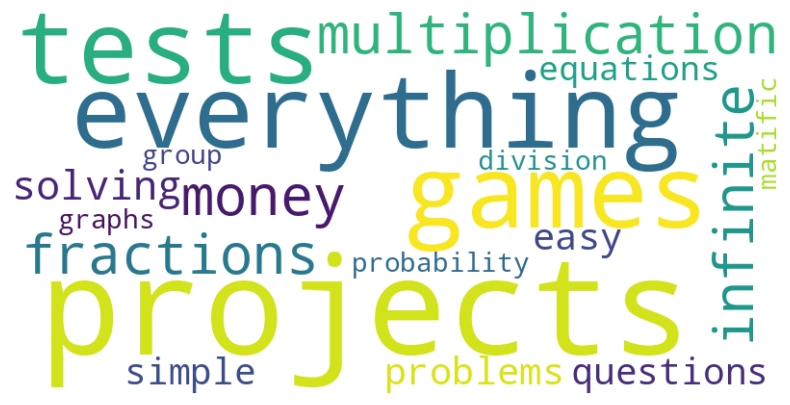
Our Next Steps
As we move forward, we will continue to pursue our numeracy goals, building on the success we've seen in fostering positive mathematical attitudes and deep numeracy understanding among our intermediate students. We are excited and hopeful about the upcoming numeracy initiatives, resources, and learning experiences that lie ahead for our students.
